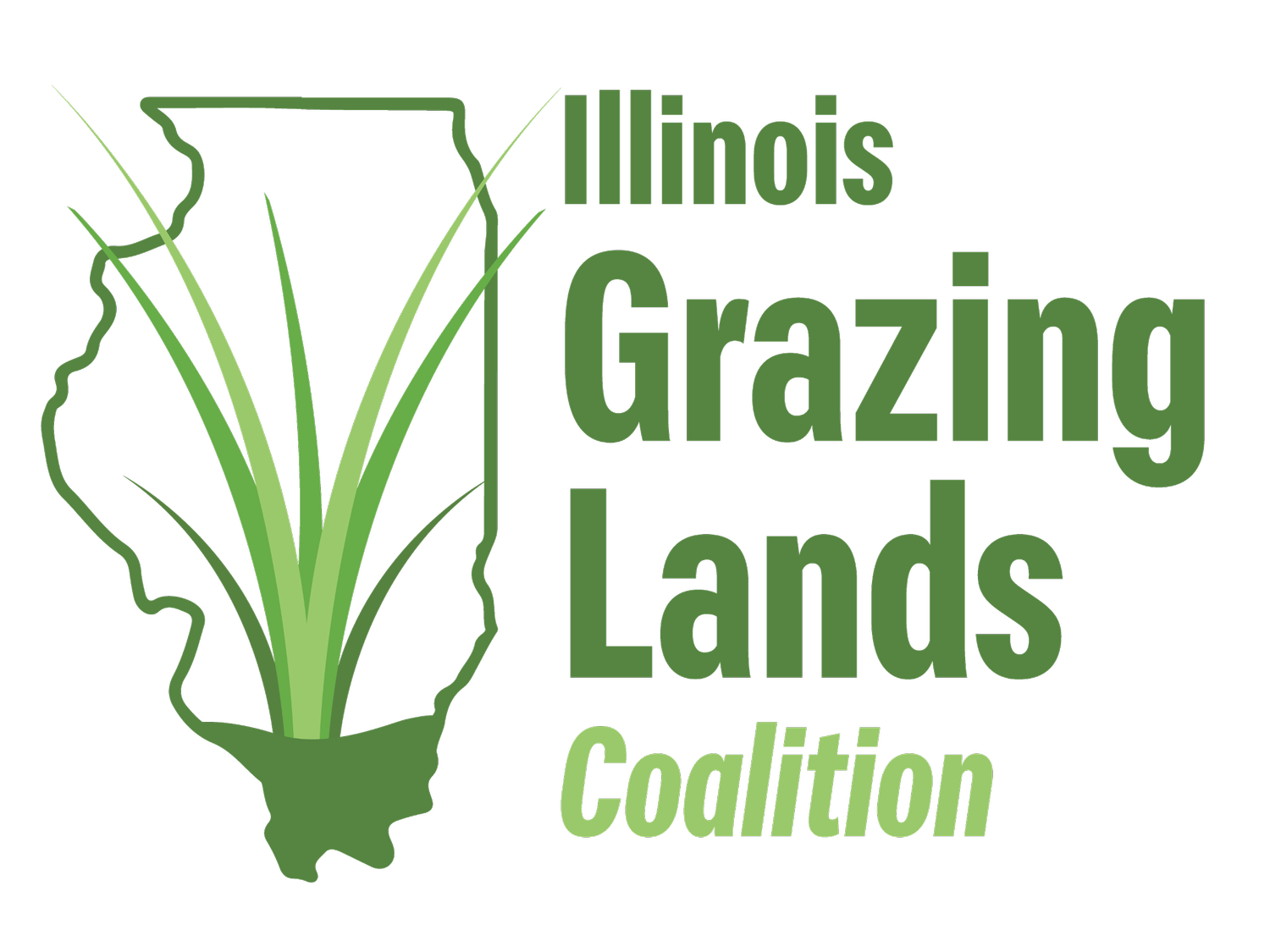Pasture Walk Recap: Supporting Southern Illinois Grazing Innovation
ILGLC recently hosted two free Pasture Walk events in partnership with Food Works of Southern Illinois, highlighting innovative approaches to small-scale, diversified grazing systems. These events provided producers with a firsthand look at how two beginning farm families are utilizing daily pasture rotations and on-farm infrastructure to grow profitable, regenerative livestock operations.
July 9 – Fresh Pasture Farms, Millstadt, IL
The Sutter family welcomed participants to their 60-acre diversified livestock farm (Fresh Pasture Farms). With an on-farm store and direct-to-consumer business model, they raise cattle, goats, pigs, chickens, turkeys, and ducks, rotating all livestock daily.
Their pasture management approach includes species-specific mobile shelters (except for cattle and goats), which simplifies daily moves. Additionally, they process all of their own poultry on-site and are using compost applications as a regenerative tool to improve soil health and reduce erosion across their rolling pastures.
July 10 – The Flock Farm, Anna, IL
The following day, participants visited the Glay family at their first-generation farm (The Flock Farm) where they raise cattle, hair sheep, pigs, and pasture-raised chickens on 60 acres of owned and leased land. Their standout enterprise is a slower-growing, dual-purpose broiler chicken that produces high-quality meat and also lays eggs.
The Glays operate a closed-loop poultry system, hatching and processing all birds on-farm, and are working toward USDA poultry certification. Like the Sutters, they also incorporate compost spreading as a soil-building strategy and maintain daily pasture moves to maximize animal health and land productivity.
These events highlighted how southern Illinois graziers are building resilient farming systems that balance ecological care with financial viability. ILGLC is proud to highlight producers like the Sutters and the Glays, who are innovating on the land and modeling regenerative practices for the next generation of livestock farmers.

